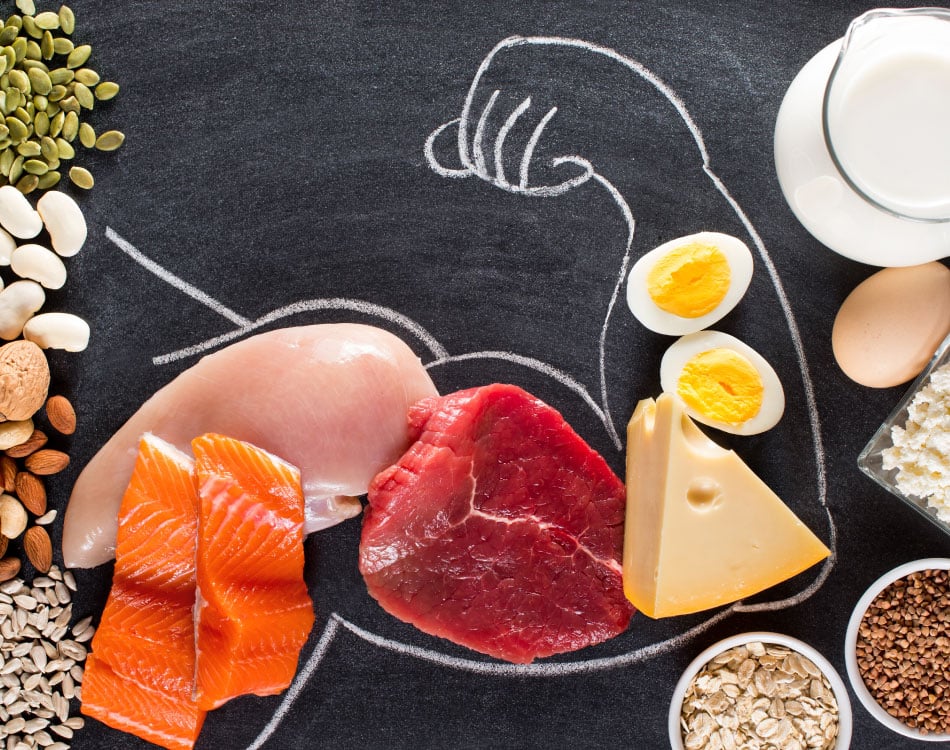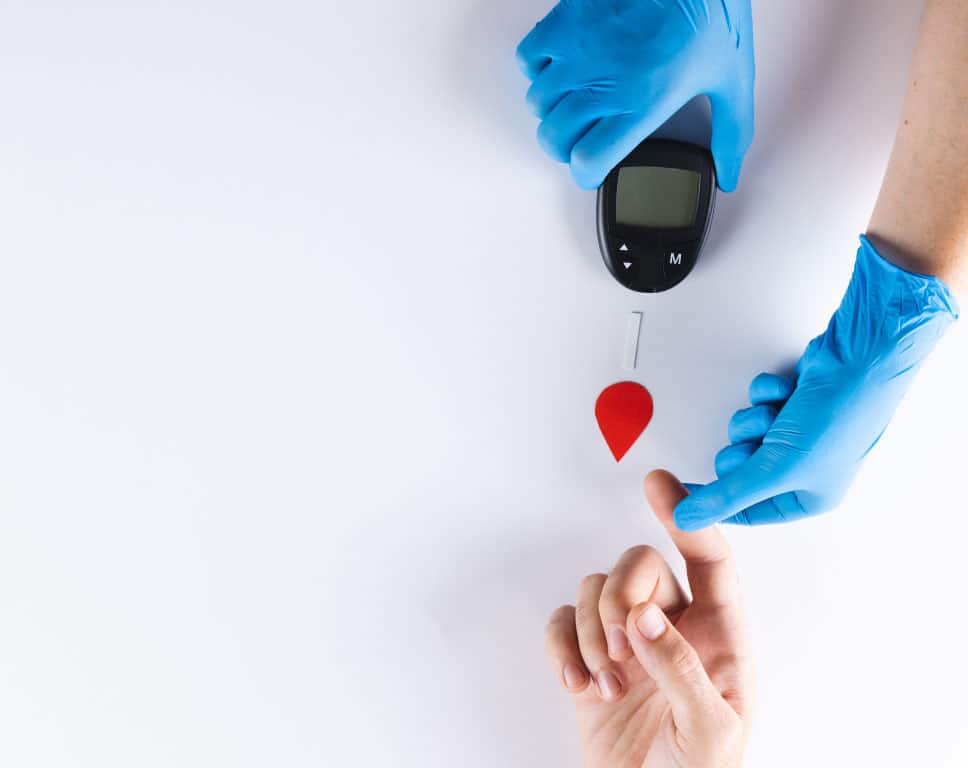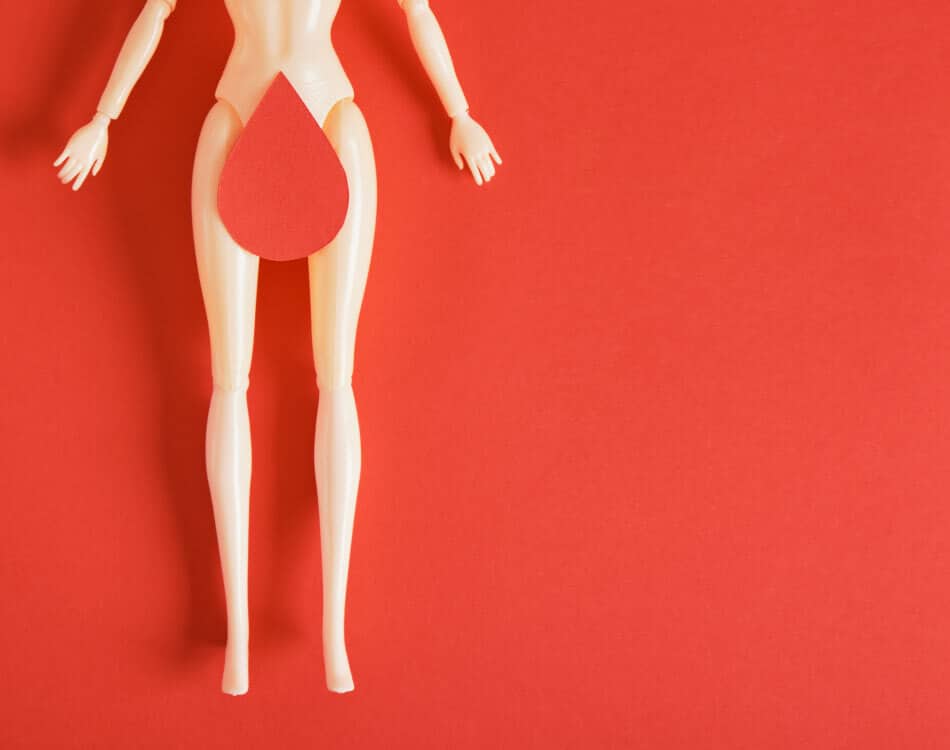It’s frustrating to see your weight creep up, despite training consistently and sticking to your diet for months.
But before you freak out, consider these five common reasons for unexplained weight gain. You can fix most almost immediately with a few simple tweaks, while others aren’t necessarily detrimental to your body transformation goals.
1. Your metabolism has changed
Your body composition changes when you control your calorie intake, eat a diet comprised of the appropriate macronutrients and exercise regularly. However, your body adapts to these dietary manipulations and increased energy expenditure over time.
Specifically, when you lose weight by creating a slight calorie deficit, your resting (basal) metabolic rate decreases (a process known as metabolic adaptation or adaptive thermogenesis).
This process means your body burns slightly fewer calories each day to meet your daily energy requirements. While the impact is negligible at first, losing more weight amplifies the response.
You’ll also need to consume fewer calories to maintain your new goal weight. Reverting back to the energy intake you consumed before your transformation will result in weight gain (this is often called rebound weight gain).
Therefore, it is important to regularly adjust your calorie intake based on your weight loss and changing body composition because your metabolic rate changes in response.
2, You’ve lost fat, but added muscle
When you lift weights and support your recovery with adequate protein from supplements and foods, you develop more muscle.
This change in body composition increases the amount of metabolically-active muscle tissue on your body. This helps to raise your metabolic rate, even while at rest. You will consequently burn more calories throughout the day, including stored body fat.
However, what we tend to forget is that this shift in body composition often increases, rather than reduces, our weight.
While the commonly-accepted explanation for this is that muscle weighs more than fat, that is not entirely accurate.
Actually, muscle tissue is denser than fat. This means that a kilo of muscle tissue takes up less volume than an equal amount of fat mass. This is why it is possible to be visibly slimmer without significant weight reduction. However, a kilo is a kilo, whether it is fat or muscle.
That means that if your measurements stay the same, you have basically replaced the previous volume of fat with denser muscle tissue. If that’s the case, then you might weight more than you did. You’ll look fit, firm and fab, though, so don’t freak out! Instead, embrace the change and keep working hard to add more shapely muscle, regardless of what the scale says.
3. You’ve ingested the weight
What we eat and drink daily has both short-term and long-term implications for our weight and body composition. When your diet in on point, you are not adding additional weight in the form of excess body fat due to an overconsumption of calories or through poor food choices.
It is more likely that the composition of your last meal and the amount of food you ate has an immediate, albeit transient effect on your weight.
The food you eat has mass, even after you’ve chewed, swallowed and digested it. Whether it’s in your stomach, intestines or your bowel, food in your system will cause weight fluctuations.
Drinking your recommended 2-3 litres of water a day can also impact your weight. Down a litre of water in a few gulps and the scale could show an extra kilo. Even if you sip throughout the day, a healthy bladder can also hold almost 500ml of urine – that can add almost half a kilo. Add to that additional sources of water stored in your body and it becomes clear why weight variations of up to 2 kilos a day aren’t uncommon. Obviously, a visit to the bathroom can reverse the weight gain.
Food allergies or intolerances can also cause bloating and water retention due to the inflammatory response in the gut.
4. You’re retaining water
Numerous factors can cause water retention, which can influence your weight during the day.
Water retention happens when fluid escapes from the circulatory system and is retained between the cells of the body. The body also uses a complex system of hormones and hormone-like substances to regulate fluid balance.
Depending on your hydration levels, this process will either rid your body of excess water or retain water if you are dehydrated.
We tend to retain water in the feet and legs, but it can also occur in the hands, arms, midsection and around the lungs. This water retention is often caused by inactivity, as inactive muscles don’t pump fluid back up towards the heart, causing it to pool.
If you’re active, it can also be food-related. In this regard, sodium intake, particularly from processed foods, is a major cause of this condition. Therefore, it could be beneficial to follow a low-sodium diet.
Other causes include pregnancy and PMS, using laxatives, contraceptives, certain medications or diuretics, or sunburn, heat exposure, allergic reactions, nutritional deficiencies, postpartum hormonal fluctuations, and hormone replacement therapies, among others.
5. Your hormonal balance is out
There are also specific changes that occur in the body after periods of calorie-restriction and weight loss that aim to restore weight homeostasis.
It’s a natural survival response as the body perceives a state of continued weight loss as a threat. This drives changes in appetite-regulating hormones such as ghrelin and insulin, and appetite-suppressing hormones such as leptin, which can result in overeating or binge eating.
Also, your body can develop a tolerance to appetite-suppressing hormones over time, yet we never develop a tolerance to appetite-stimulating hormones. As a result, these hormones continue to stimulate feelings of hunger, even once a diet ends.
If you don’t manage your calorie intake, you can easily regain the weight.
Dieting also affects other metabolism-regulating hormones such as thyroid hormones, which effectively slows your metabolism and may stunt fat and weight loss.
Oestrogen dominance – disproportionate levels of oestrogen compared to progesterone – can also result in unexpected weight gain because this state promotes fat storage, particularly around the mid-section.
While this is most common among peri-menopausal and menopausal women, environmental factors, like ingesting endocrine disruptors such as hormones, pesticides and PCBs from plastic, can also cause this effect.
Similarly, chronically elevated levels of the stress hormone cortisol from extreme dieting and exercising or other stressors, can also promote fat gain, particularly around our organs in the form of visceral fat.
And changes in the balance of specific hormones that relate to a woman’s menstrual cycle can cause some degree of water retention, too, which, as already explained, can affect your weight.















